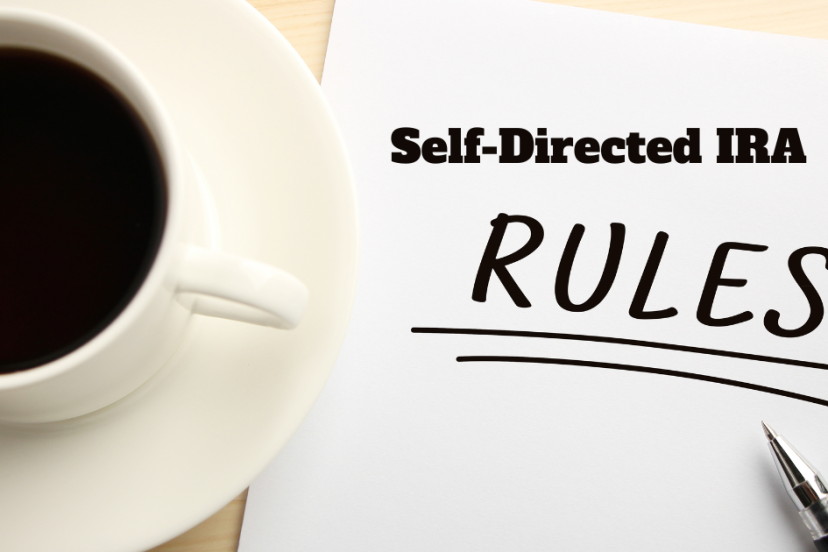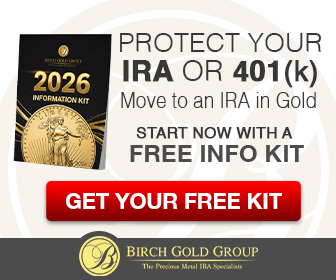Self-Directed IRA Rules: **Understanding Regulations for Self-Directed IRAs**
**Introduction:**
Hello there, fellow retirement planning enthusiasts! Today, I want to delve into the exciting world of Self-Directed Individual Retirement Accounts (IRAs). As someone passionate about Gold IRA retirement planning, I can’t stress enough how crucial it is to grasp the rules and regulations governing self-directed IRAs. In this article, I’ll provide helpful insights and reasons for my suggestions to navigate the self-directed IRA landscape successfully.
**What is a Self-Directed IRA?**
Let’s begin with the basics. A Self-Directed IRA is a unique type of retirement account that offers investors greater control over their investment choices. Unlike traditional IRAs, where investments are limited to stocks, bonds, and mutual funds, a self-directed IRA allows you to invest in a broad range of assets, including real estate, precious metals, private equity, and more. This flexibility opens up a world of possibilities, but it also comes with specific rules and responsibilities.
**Attributes of Self-Directed IRAs**
Before we dive into the nitty-gritty of the rules, let’s explore the unique attributes of self-directed IRAs. First and foremost, the freedom to choose from various investment options allows for better portfolio diversification. Moreover, if you have expertise in a particular industry or asset class, a self-directed IRA enables you to capitalize on your knowledge and make strategic investment decisions.
**Key Rules and Regulations for Self-Directed IRAs**
Now, let’s get to the heart of the matter: understanding the rules that govern self-directed IRAs.
**Eligible Investments**
The IRS allows a wide range of investments in a self-directed IRA, but there are some exceptions. Permissible assets include real estate, precious metals like gold and silver, private businesses, private loans, and tax liens. However, investments in life insurance, collectibles, and certain types of precious metals may not be allowed. Always conduct thorough research or consult with a financial advisor to ensure your investment choices comply with IRS guidelines.
**Prohibited Transactions**
While a self-directed IRA offers incredible investment opportunities, it’s essential to avoid prohibited transactions to maintain its tax-advantaged status. Engaging in transactions with disqualified persons, such as close family members, or using the account for personal gains can lead to severe penalties. Understanding what constitutes a prohibited transaction is vital to protect your retirement savings.
**Contribution Limits and Tax Implications**
Contributions to self-directed IRAs follow the same limits as traditional and Roth IRAs. As of 2021, the maximum annual contribution for individuals under 50 years old is $6,000, while those 50 and older can contribute up to $7,000 (subject to IRS updates). Additionally, it’s crucial to be aware of the tax implications associated with different types of self-directed IRA investments.
**Setting Up a Self-Directed IRA**
If you’re intrigued by the potential of self-directed IRAs and ready to take the plunge, setting up your account is the next step.
**Choosing the Right Custodian**
A self-directed IRA requires a custodian or trustee to handle administrative tasks and ensure compliance with IRS regulations. It’s crucial to select a reputable custodian experienced in handling alternative assets to avoid potential pitfalls.
**Funding Your Self-Directed IRA**
Once your self-directed IRA is established, you’ll need to fund it. You can do this through contributions, rollovers, or transfers from other retirement accounts. Properly managing funds is essential to maintain compliance and maximize growth.
**Managing and Diversifying Investments**
As you begin making investments within your self-directed IRA, there are essential considerations to keep in mind.
**Due Diligence in Investment Selection**
Thorough research is essential before making any investment. Conduct due diligence, analyze potential risks, and understand the potential returns before committing your funds.
**Diversification Strategies**
Diversification is a crucial aspect of any investment strategy. Spread your funds across different asset classes to mitigate risks.
**Tax Reporting and Compliance**
A self-directed IRA involves specific tax reporting requirements. Ensure you adhere to all IRS regulations and maintain accurate records of transactions, contributions, and distributions.
**Potential Risks and Pitfalls**
While self-directed IRAs offer exciting opportunities, they also come with potential risks. Being aware of these risks and pitfalls can help you make informed decisions.
**When to Seek Professional Advice**
Navigating the world of self-directed IRAs can be complex. Don’t hesitate to seek guidance from a financial advisor or tax professional with experience in this area.
**Case Studies: Real-Life Examples**
Learning from real-life case studies can provide valuable insights into successful self-directed IRA investments and potential mistakes to avoid.
**Tips for Maximizing Returns**
As a Gold IRA enthusiast, I understand the importance of diversifying and appreciate how gold as been a steady asset class for generations. Here are some tips to boost your self-directed IRA’s performance.
**Future Trends and Outlook**
The financial landscape is continually evolving. Stay informed about emerging trends and potential changes in regulations that may impact self-directed IRAs.
**Conclusion**
In conclusion, self-directed IRAs offer freedom and a unique way to invest in addition to traditional vehicles. Understanding the rules and regulations governing these accounts is crucial for a successful retirement strategy. By conducting due diligence, diversifying your investments, and seeking professional advice when needed, you can make the most of this powerful retirement planning tool.
**FAQs:**
- **What are the advantages of a self-directed IRA over traditional IRAs?**
– Discuss the benefits of investment flexibility and potential for higher returns.
- **Can I invest in physical gold with a self-directed IRA?**
– Explain the eligibility of precious metals, including gold, in a self-directed IRA.
- **What is a prohibited transaction, and what are its consequences?**
– Detail the concept of prohibited transactions and the potential penalties involved.
- **Are there any special tax benefits associated with self-directed IRAs?**
– Discuss the tax implications and advantages of self-directed IRAs compared to other retirement accounts.
- **Is it possible to convert an existing IRA into a self-directed IRA?**
– Explain the process of converting an IRA to a self-directed IRA and the steps involved.






